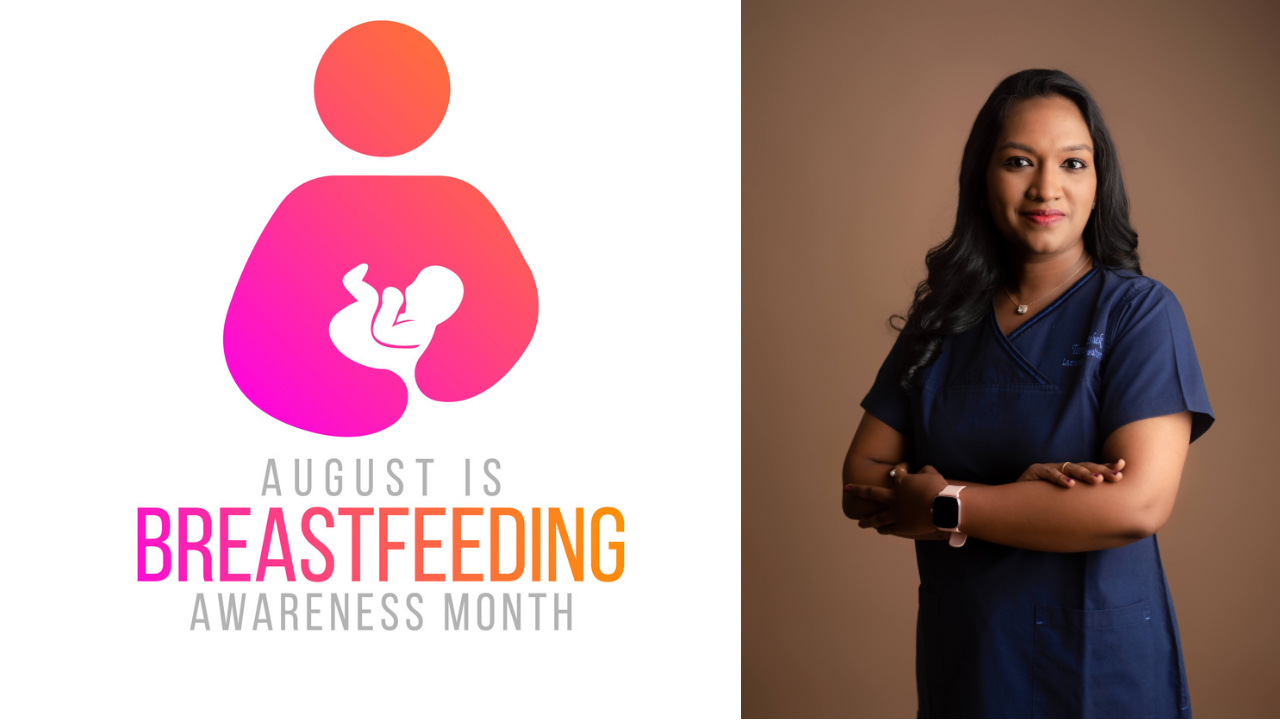Teena Abishek is a Lactation Consultant in Chennai from Childbirth and Postpartum Professional Association, CAPPA USA. She has got 12 plus years of solid medical professional experience. Currently, She is practising at Apollo Specialty Hospitals, OMR and R and R Hospital, T Nagar.
Her mission is to empower pregnant women and their families through prenatal education and breastfeeding counselling. She is also certified by UNICEF for Infant and Young Child Feeding program and HUG Your Baby organization for Breastfeeding related programs. She is a member of the ILCA. (International Lactation Consultant Association). She specialises in Induced Lactation which is, “Breastfeeding for Adoptive Parents” and helped 100s’ of mothers in their motherhood journey.

Family-friendly policies help parents and caregivers to give their children the best possible start in life. These policies assist employees in balancing work and family, helping them achieve the best results. Four such policies have been recognised by UNICEF that are devoted to children’s well-being, women’s empowerment, and the environmental provision of suitable employment for carers:
• Sufficient paid leave for all parents and caregivers to meet the needs of their young children in both the official and informal economies (this includes paid maternity, paternity, and parental leave, as well as time to care for sick young children).
• Support for mothers to breastfeed exclusively for the first six months of their child’s life, as recommended by the World Health Organization and UNICEF, and to continue nursing for as long as they like.
• Providing all children with affordable, high-quality childcare and early education. Child benefits and suitable earnings are provided to assist families in providing for their young children.
These policies allow parents and carers the time, resources, and services they need to recover from childbirth and guarantee stable bonding and attachment with their newborns, laying the groundwork for lifelong health.
Why is workplace breastfeeding assistance important?
Nursing support is critical since nursing nourishes and gives the best start in life for all children. Breast milk serves as a baby’s first vaccination giving essential protection from illnesses and possibly death. Breastfeeding also promotes safe connection, and cognitive development, and reduces the rate of sickness in mother and child, lowering healthcare expenditures, and creating new jobs, healthier families, and stronger societal development. Despite these obvious advantages, studies have shown that returning to work without proper support systems can impede optimal nursing practice. Breastfeeding assistance is critical for the health and development of children, mothers, and society. Workplace breastfeeding rooms, paid nursing breaks, and a supportive breastfeeding environment and culture are all low-cost treatments.
Governments, corporations, public society, and families may all work together to safeguard and facilitate this practice to protect women’s health and assure children’s survival and well-being. In this handbook for companies, we present technical ideas and best practices to help employers build breastfeeding rooms and create support structures in the workplace. More than 820,000 children under the age of five could be saved. Every year, 20,000 cases of breast cancer may be avoided.
Breastfeeding is the most natural and healthy approach to feeding a baby. In terms of nutrients, antibodies, attachment chances, bonding, and stimulation, no milk substitute can match breast milk. The benefits of breastfeeding are evident from the start. The newborn’s first touch with the mother’s breast is beneficial to the baby. Babies require six hours of sleep per day. Months of exclusive nursing, i.e., no other liquid foods and should continue nursing after that, with the addition of other foods, till the child is 2 years old or older. Employers play a key role in helping families and allowing women to breastfeed for as long as they want.
Breastfeeding support in the workplace provides enormous human and economic benefits.
Improving firms’ corporate image by demonstrating that they care about the health and well-being of working women and their families.
Reducing the number of leave requests for doctor’s appointments for both mother and child, as well as sick leave, Reducing maternity-related absenteeism, which can result in 30-70% fewer absences.
Increasing female worker retention since they feel more supported by the firm, lowering employee turnover rates, and saving the organization money by removing the need to acquire and train new employees.
Advantages to the Mother and child
Breastfeeding significantly enhances a mother’s and her child’s health. Breast milk protects the infant from infectious diseases including diarrhoea and respiratory infections, lowering the frequency and severity of common childhood illnesses. Breastfeeding plays a critical impact in avoiding noncommunicable diseases such as obesity, overweight, hypercholesterolemia, type 2 diabetes, and cardiovascular disease, according to research. It is one of the practices that aid in the prevention of sudden infant death syndrome.
For the sake of the mother
It promotes quick recovery after delivery by preventing severe bleeding. It lowers the risk of chronic diseases like breast and ovarian cancer, heart disease, and diabetes. It also helps with birth spacing.
Society and the Environment
Breast milk is always available and affordable in any economy. It provides benefits that are not available from any other food. However, nursing practices are frequently harmed by factors such as unethical marketing and promotion of breast-milk substitutes, as well as a lack of support structures in the workplace.
Breastfeeding promotes family unity. It reduces medical expenses as the antibodies in the mother’s milk are beneficial. Breast milk is a renewable and natural resource.
Breastfeeding rooms:
Employers are responsible for ensuring the safety of women in the workplace. Providing a supportive environment for employed mothers allows them to work with greater stability, motivation, and contentment. This, however, necessitates appropriate accommodation with a focus on the several types of work environments of the mothers and the various risks associated with each respective environment through scaling up and monitoring breastfeeding interventions and calling on institutions to remove structural and societal barriers to breastfeeding.
Breastfeeding at work, makes societies work!















